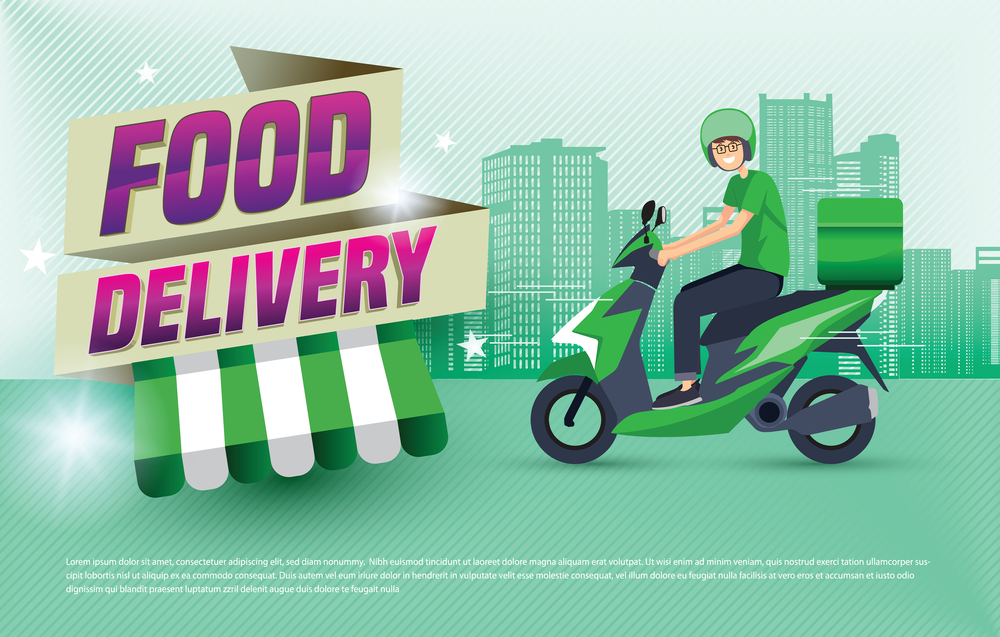In the minds of consumers, the value of a product often does not fully match the message that a business wants to convey. Driven by fleeting emotions, ingrained habits, and external influences, they often make emotional judgments about product value and allocate spending irrationally. This phenomenon, known as “Mental Accounting” good Psychological Accounting is an invisible but powerful law that governs consumer behavior and purchasing decisions.
Even if it’s the same amount of money, the way you spend it can change dramatically depending on where it comes from. If it comes from a salary, you’ll likely be more careful and deliberate about how you spend it. On the other hand, if it’s a bonus, you may feel more relaxed and generous about how you spend it.
If you spend the same amount of money on a dinner at a fancy restaurant in a popular destination, you will feel that it is a great experience. But if you spend the same amount of money on a similar meal at a more affordable place, even if the quality is not the same, you may still feel dissatisfied and not get the value.
These reactions reflect a particular psychology called “Mental Accounting”. This is a phenomenon where consumers judge product value and make financial decisions based on emotion rather than reason. As a result, they manage their money and spend according to emotional values, which deeply influence their purchasing decisions and perceptions of Brand value.
Mental Accounting: Emotions, Context, and Spending Decisions
According to the theory of Mental Accounting, people tend to assign a particular meaning and value to money, based on their personal views or the influence of their environment. This means that the way we evaluate money, whether it is spent on a product, reward, or risk, is not only based on its actual value but also influenced by emotions and specific circumstances. Mental Accounting psychology manifests itself in a number of key trends that shape the way we manage and allocate money in our daily lives.

Spending Strategy: How to Optimize Satisfaction and Risk
Consumers often experience greater pleasure when receiving benefits in small portions, because each small reward stimulates the release of dopamine, providing a continuous feeling of happiness. Conversely, when the same amount of risk is divided into small portions, feelings of anxiety and pressure increase, making the risk more burdensome and worrisome. This leads to a misjudgment of the value of risk and reward, because dividing risk increases the feeling of loss and pain.
Similarly, in shopping, when costs such as VAT, shipping and packaging are separated into smaller amounts, consumers feel like they are paying more than if they were all lumped into one total. Conversely, breaking down bonuses and promotions into smaller amounts makes consumers feel like they are getting more, increasing satisfaction and a sense of value.
Unexpected Profits: Impulsive Spending and the Impact of Mental Accounting
Mental Accounting is often strongly influenced by unexpected gains, causing us to assign a different value to these amounts than we would to planned income. When we receive an unexpected bonus or discover an unfamiliar amount of money, we are more likely to spend it freely and spontaneously on items that were not part of our daily financial plan, such as a surprise vacation, a luxury item, or a fancy dinner.
The reason is that unexpected money is not predicted, leading to impulsive and ill-considered spending decisions. The allure of unexpected profits is an opportunity for brands to exploit, to influence and change the Mental Accounting psychology of consumers, thereby influencing the way they feel and manage their spending.
Category Spending: Psychology and Financial Decisions
People tend to organize their financial activities into separate mental categories, with predetermined budgets. For example, you might divide your expenses into categories like education, entertainment, and nutrition, and unconsciously assign a certain amount of money to each category. This can lead to you spending easily on expensive courses but being reluctant to buy healthy foods.
Famous research of Daniel Kahneman and Amos Tversky 1999 illustrates this trend clearly. In the experiment, participants were asked to decide whether they would buy a $10 ticket to a play. If they lost $10 on the way to the theater, 88% of people would buy a new ticket. Conversely, if they lost a ticket they had already purchased, only 46% would be willing to buy a new ticket. The results showed that grouping expenses into different categories profoundly affects spending decisions. Losing a theater ticket is considered a loss in the entertainment category, leading to a different decision than losing the same amount of money. This grouping shows how we unconsciously misjudge value and risk, which affects our everyday financial decisions.
The Impact of Balance Checking Frequency on Budgeting and Spending
How often you check your bank account or wallet balance can have a profound effect on how you budget and spend. If you check your balance regularly every month, even a small gain can make you feel confident enough to increase your spending budget. Conversely, if you only check your balance quarterly or annually, small increases in income each month will have less of an impact on your spending plan. This suggests that the more often you check your balance, the stronger and more pronounced your level of mental accounting and sense of budgeting will become.
The Effect of Context on Perceived Product Value
Context and surroundings can increase the value of a product or service in our minds. For example, a dinner at a fancy restaurant on the beach will be perceived as more expensive and worth it than a similar dinner at home, even though the actual value of the dinner has not changed. The luxury and class of the surrounding environment can automatically increase the value of the product in the consumer’s mind.
Explore Mental Accounting Tactics to Enhance Product Value and Promotion
The influence of Mental Accounting on consumer behavior and purchasing decisions is undeniable. Understanding this principle not only helps businesses build sophisticated marketing strategies but also create persuasive campaigns that deeply impact customers. By exploiting this psychology, brands can enhance consumers’ emotional experiences, thereby promoting quick decision-making and strengthening brand connections. So, how should brands respond and take advantage of consumers’ Mental Accounting psychology to achieve optimal efficiency?

Price Anchoring Psychology: Increasing Product Value
Price Anchoring Strategy is a great example of the power of Mental Accounting, which exploits the mechanism of reference comparison to enhance the perceived value of a product. Brands often cleverly offer products at sky-high prices, in order to create a clear point of comparison. When consumers see these “sky-high” prices, they unconsciously judge the value and quality of the product as premium, thereby enhancing the overall brand image.
For example, if you visit a website and come across sneakers priced at $500, you will form an impression of a luxury brand. When you continue scrolling and see a $500 sports shirt, while this is still a lot higher than the market price, it seems like a bargain compared to the $500 price of the shoes. The anchoring strategy makes you feel good about this choice, because it seems cheaper than the previously established higher price. This is how the anchoring strategy increases the perceived value of a product by creating high reference prices.
All-Inclusive Pricing: Minimize the Sense of Hidden Costs
Based on previous analysis, consumers are generally uncomfortable with additional costs during the checkout process. To enhance the shopping experience and reduce friction, consider integrating costs such as shipping and packaging fees into the initial product price, rather than splitting them or adding them after the user has selected the product.
A good example is when you book a flight through platforms like Traveloka or Booking.com. These sites cleverly consolidate all costs, from taxes to service fees, into one clear price. This not only gives consumers a comprehensive and transparent view of costs, but also minimizes the perception of hidden costs, making for a pleasant and distraction-free checkout experience.
Meaningful Labeling: Turning Products into Premium Choices
A shirt sold on an E-Commerce platform can become more valuable to consumers when it is equipped with labels such as “sustainable” or “eco-friendly.” Meaningful attributes such as environmental protection, sustainable development, or supporting agricultural products not only enhance the perceived value of the product, but also create an emotional connection with customers.
To maximize the mental accounting psychology and increase the value of your product in the consumer’s perception, equip your product with influential features. These elements not only make the product stand out in a sea of choices, but also create deeper empathy, making customers feel that your product is not just a choice, but a meaningful and valuable decision.
Combo Offer: Increase Sales and Rescue Products
Selling products in bundles at discounted prices is not only a smart strategy to increase sales, but also a subtle way to “revive” low-revenue items. When customers see that they can own multiple products at a lower combined price, they will feel the savings and superior value. This not only optimizes the feeling of reasonable spending but also creates a strong impression of smart shopping decisions, thereby boosting sales and improving consumer satisfaction.
Split Promotion Strategy: Create a Sense of Greater Benefit
A prominent example of this tactic is Grab, which has cleverly refined the way it presents its promotions. Instead of a single, large promotion package, Grab has broken them down into several parts with different attractive names and allowed users to apply multiple vouchers to a single order. Although the total value of the promotion does not change significantly, this division creates a sense of generosity and richness for consumers.

To increase the perceived value of offers and discounts in the eyes of customers, brands should consider segmenting promotions into multiple parts. This segmentation not only creates fun and excitement, but also makes customers feel like they are getting more, thereby increasing satisfaction and positive impressions.
Conclusion
In short, Mental Accounting theory reveals how customers unconsciously evaluate the value of a product, reward, or cost in their minds. By understanding and applying this psychology, brands can fine-tune their presentation and incentives to increase customers’ perceived value, reduce anxiety at checkout, and stimulate excitement in every purchase decision. In this way, brands can not only enhance the customer experience but also improve business performance in a smart and effective way.
Comment Policy: We truly value your comments and appreciate the time you take to share your thoughts and feedback with us.
Note: Comments that are identified as spam or purely promotional will be removed.
To enhance your commenting experience, consider creating a Gravatar account. By adding an avatar and using the same e-mail here, your comments will feature a unique and recognizable avatar, making it easier for other members to identify you.
Please use a valid e-mail address so you can receive notifications when your comments receive replies.
